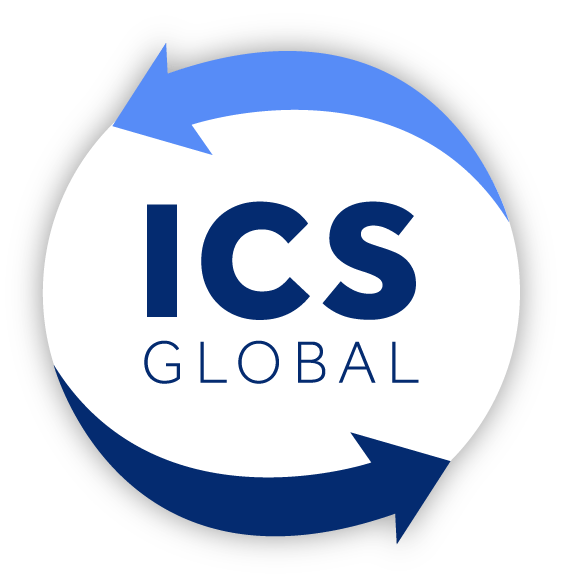What is Supply Chain Management?
Essentially, International Supply Chain Management is the process for tracking your product’s entire life cycle, from raw materials and planning its overseas production up to the international delivery to the end customer. The process involves management of six key areas: supply planning, product planning, demand planning, sales and operations planning, supply management and logistics. Certain industries will refer to the supply chain as International Logistics, while in other industries they view logistics as a component of the International Supply Chain. No matter the terminology, businesses need an understanding of how to manage the movement of their goods within an increasingly more complex global environment. Fundamentally, international supply chain management will span end-to-end global trade activities, such as the management of global suppliers, multinational production processes, international transportation and overseas third-party service providers.
7 Steps of International Supply Chain Management
Supply chain management can often appear complex as it covers every aspect of operations, from sourcing materials through to the delivery of products or services to the end customer. However, a better understanding can be achieved by breaking the international supply chain into distinct steps.
International Supply Chain Planning
The first step of the supply chain management process is the planning step. Your company will need to develop an international business strategy and plan to ensure products and services meet the demands and requirements of the customer. The planning step should focus on a supply chain strategy that will deliver the highest profit possible, while controlling costs. During this planning process, your company should be able to identify the benefits and disadvantages of different international supply chain options. The planning step should also include identifying what products or services need to be produced and in what quantities. This involves your company deciding how the products will be sourced or manufactured, and where the end delivery location will be. The success of your planning step will be dependent on the amount and quality of the business information you can collect. During this process your company should recognise trends in the market, such as the level of demand for the products and what international supply options are available.
International Product Sourcing
Sourcing is the purchasing of products and services at a competitive price, in the right quantity and within the required delivery window. Depending on your company strategy, the sourcing step may also include purchasing the necessary raw materials and components for producing the end products. During this step your company will need to focus on building strong relationships with overseas suppliers. This means working with suppliers who are dependable and who deliver products in line with established production timetables. During this supply chain step your company needs to be setting pricing, delivery and payment processes with suppliers, and creating Key Performance Indicators (KPIs) for managing and improving the relationships.
Overseas Production
This step involves your company agreeing the processes to manufacture or make the products to meet the expectations of the customer. During this step, your products are designed, produced, tested, packaged, and scheduled for delivery. This step often requires the most intensive Key Performance Indicators (KPIs) to gauge quality levels, production output and productivity in line with expectations.
International Location
Your company should consider within this step the location of the overseas supplier and the supply chain requirements. Some companies believe that having suppliers based within short transit times from the delivery location will be easier to manage. However, they may not be realising the benefits of lower pricing from suppliers further across the globe. These benefits can come from buying your products from suppliers based in countries that have preferential trade agreements. A large and growing number of countries participate in preferential trade agreements, resulting in businesses paying lower or zero preference rates of import customs duty on their products.
Inventory
One of the most important steps within international supply chain management is maintaining accurate and up-to-date inventory records. These inventory records need to cover available stock, stock in transit and replenishment stock requirements, and these records are required to be updated in real time to ensure that the supply of products is always maintained correctly. If the products or raw materials are not in stock when and where they must be, then the whole production process and/or international supply chain will fail to meet customer demands.
International Transportation
Supply chain management involves arranging transportation for raw materials or completed products to customers. International transportation involves moving your products across borders of specific countries by air, land, sea or via multimodal solutions. International transportation can be complex and it is important to move your goods in the most cost-efficient way and in a timely manner. International shipping can be a challenging process when it comes to moving your products across international borders, due to supply chain complexities and many customs regulations.
Returns
The last and final step of supply chain management is referred to as returns or reverse logistics. In this step, defective or damaged products are returned to your company by the customer, and you may return these products to your overseas supplier. Occasionally your business may have to recall sold products due to safety concerns or for technical issues. The products may require an inspection, a solution to fix them or require a return of the faulty products back to the overseas supplier. This step within the international supply chain can often be problematic for your company if you do not have robust customer returns processes for issues with delivered products. These product returns to an overseas supplier are sometimes known as reverse supply chain flows.

Benefits of International Supply Chain Management
Implementing effective international supply chain management will enable your business to optimize the flow of products, improve communications with suppliers and reduce costs within the end-to-end supply chain.
List of Services
-
International Shipping Documentation
Effective international supply chain management will enable your business to manage the movement of goods across borders which is essential in an increasingly global economy. By having the correct documentation when importing or exporting, businesses can avoid customs clearance delays, increased costs and business risks.
-
Improved Customs Clearance
By working in collaboration with a Customs Clearance Agent, you can cost effectively manage the customs clearance process, submit all necessary documentation and optimise your duty and import tax payments.
-
Supplier and Service Provider CollaborationList Item 1
By working in collaboration with suppliers and service providers you will improve communications, forecasting, reporting and therefore will obtain greater visibility within the end-to end supply chain.
-
Cost EfficiencyList Item 2
The implementation of supply chain management will help your business achieve cost efficiencies by better control of transportation costs, warehousing costs, inventory levels, packaging costs and wastage, which in turn increases the profitability of the company.
-
Improved Product and Material FlowsList Item 3
Effective supply chain management will enable your business to improve product flow through accurate demand and sales forecasting, supply chain visibility and improved inventory management. The less time it takes your products to reach the end customer, the more efficient your product flows.
-
On Time DeliveriesList Item 4
With effective supply chain management, you will be able to meet customer expectations and deliver the product to the customer on time. Supply chain management will also enable you to remove bottlenecks within production schedules, deal with poor logistical services and identify late shipments from suppliers.
International Supply Chain Developments
Traditionally international supply chain management focused on a few key areas, such as availability, transit of products and costs. Modern international supply chain management is still focused on the same key service areas, but are now driven by data, greater service options and solutions. Therefore, international supply chain management embraces real time track and trace solutions, end-to-end supply chain visibility, quality of services, expenditure, the customer experience and bottom-line profitability.
Modern international supply chain management is all about taking advantage of considerable data generated by supply chain processes to optimise service solutions moving forward. The combination of data and supply chain management results in real time visibility of supply chain disruption, such as weather, labour shortages, lack of equipment, delayed sailings, rerouted shipments and congestion at the ports.
My Services

International supply chains can be complicated. I have many years of experience within international supply chain management and specialise in helping my clients from various sectors and industries to successfully implement robust international solutions. I have provided value-added solutions for my clients to achieve their international supply chain management objectives which have delivered reliability, speed, agility, resilience, cost efficiencies and sustainability.
My services take clients through the process of creating and managing a global supply chain strategy and aligning it with the conditions of their industry.
Client Recommendations
"I contacted Ian reference a project for a key client of mine. It was a full analysis, report and recommendations on their global supply chain. From the moment I spoke to Ian he spoke the right language, had the relevant experience and presented his approach brilliantly. The client was equally impressed and he delivered exactly what was required and at a higher level than they had originally expected. I couldn’t recommend Ian highly enough and will be putting him in front of other clients in the future. "
Managing Director
"During Ian’s assignment as Interim Supply Chain Director, he was responsible for implementing international supply chain solutions to support the business with Brexit readiness. He managed the overall supply chain operations, including purchasing and inventory of raw materials, selection of vendors, and distribution of finished products. Ian provided and delivered a business strategy to ensure business continuity after Brexit. Ian has a friendly, passionate and professional approach to business and has been a pleasure to work with."
Operations Director
"I worked with Ian for 3 years and relied on his knowledge and professionalism to help navigate difficult supply chain situations across the world. He makes good companies great."
Director of Sourcing
Contact me to discuss your supply chain requirements
Whatever your requirements are, I will provide tailored international supply chain management solutions to support your business. Please complete the form below and I will get back to you.

